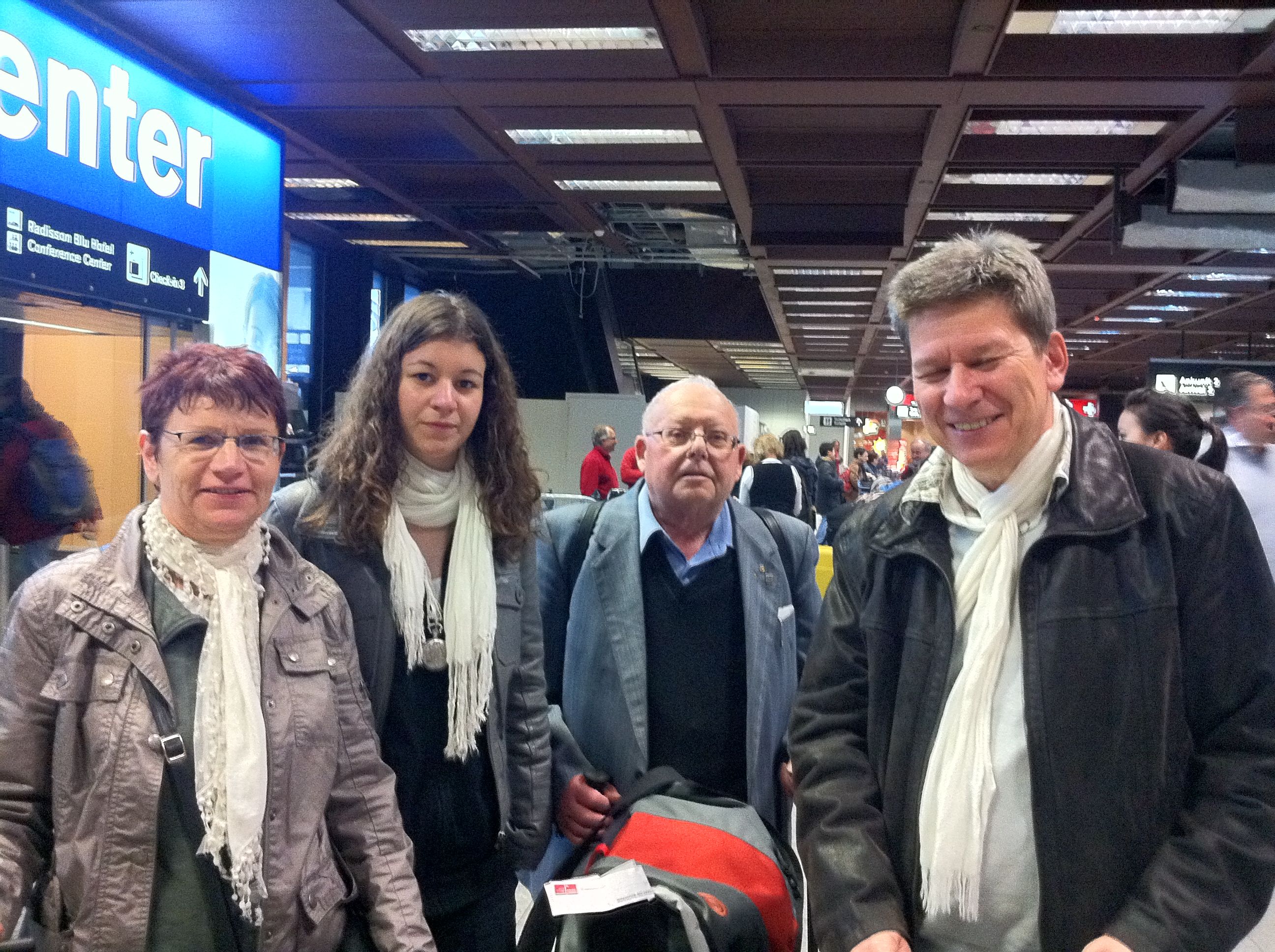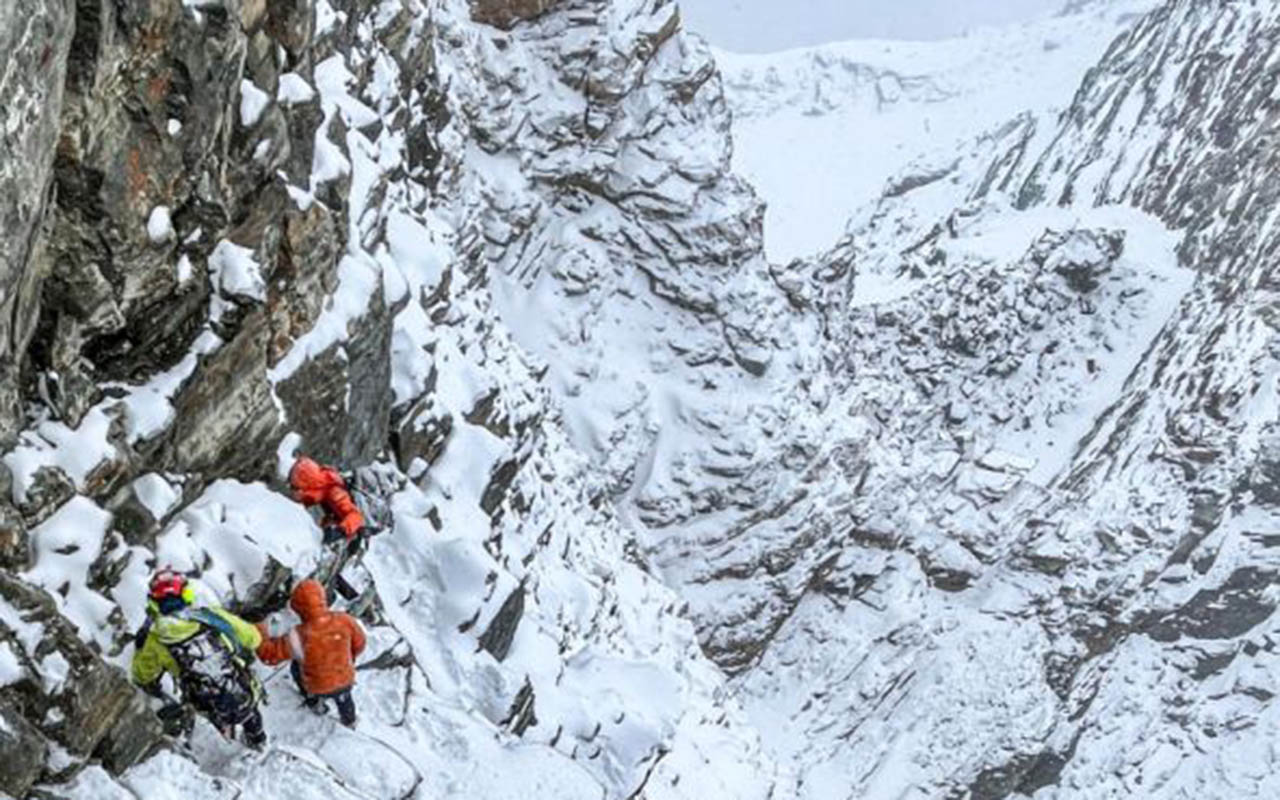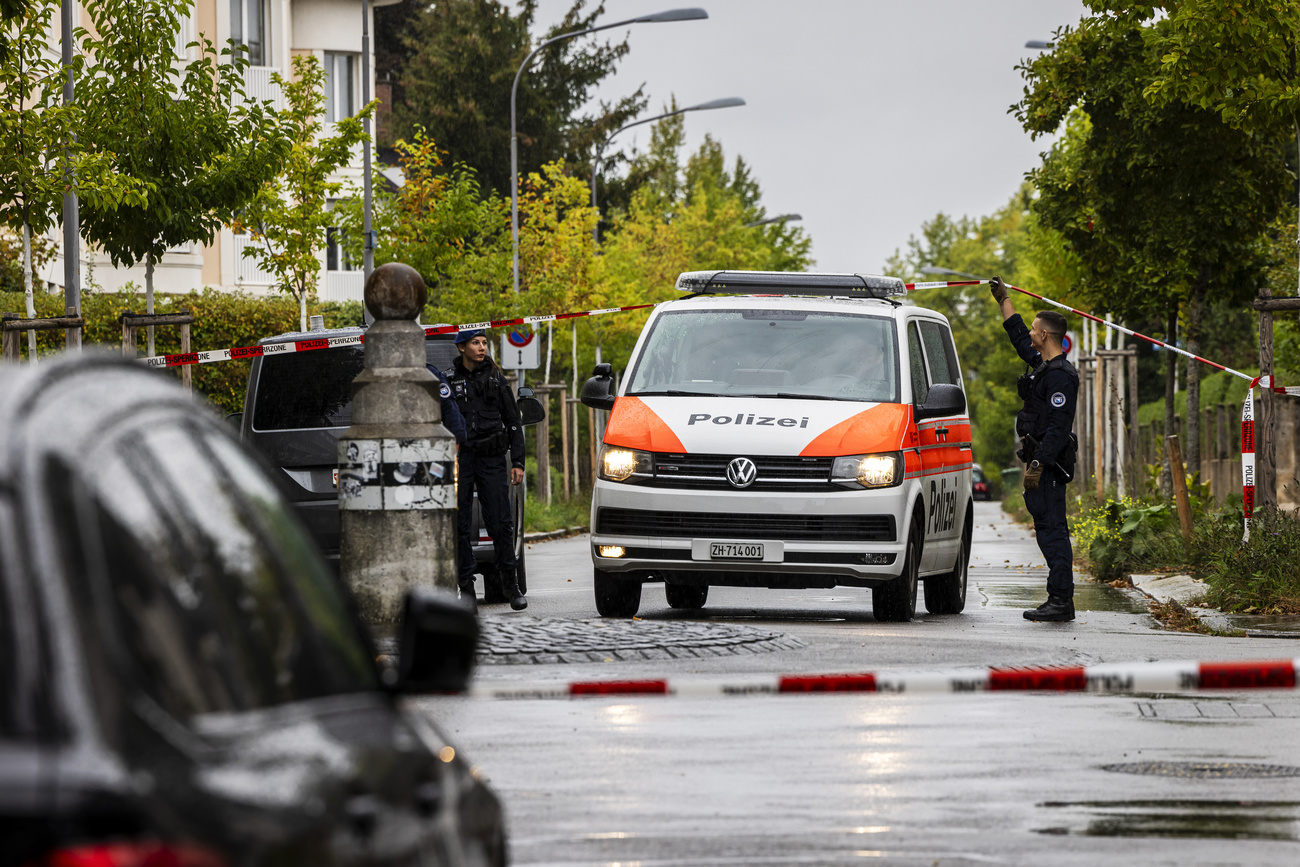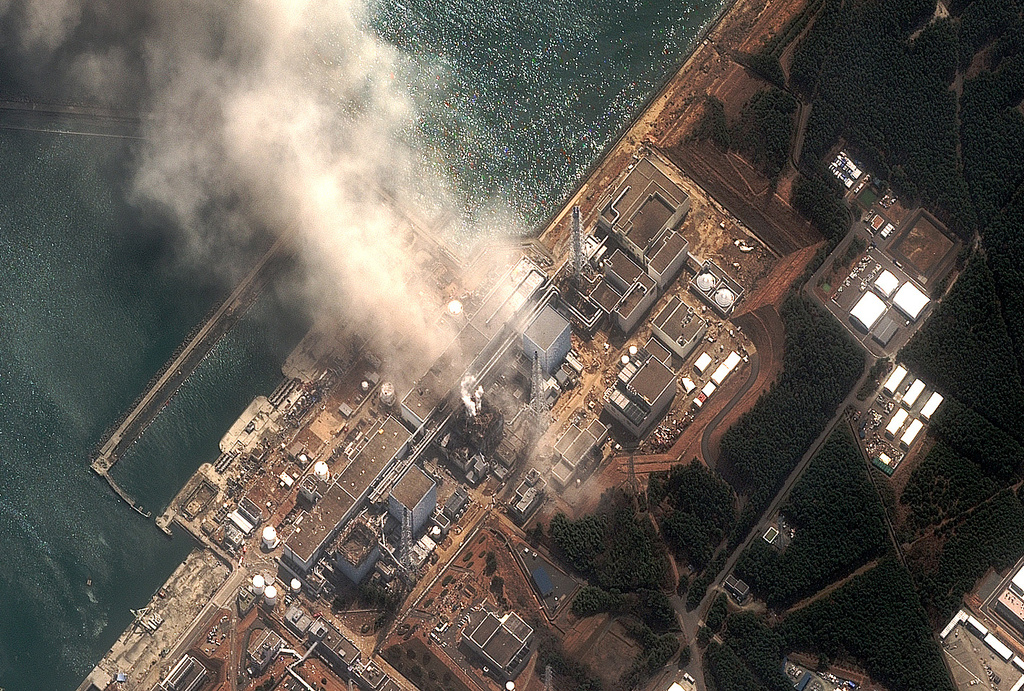Relief and guilt as Swiss return from Japan

A Swiss International Air Lines flight from Tokyo landed in Zurich on Thursday morning, bringing back those escaping the earthquake and tsunami devastation.
Relief mixed with exhaustion and sadness were written on the faces of those disembarking from flight Swiss LX 2763.
Hitomi Baltisberger waited with barely concealed impatience for the arrival of her daughter Gabi, her Japanese son-in-law and their seven month old daughter. Baltisberger and her other daughter, Yuko, had come from Basel to meet the flight, due to arrive at 8.15am.
They hinted that the decision to leave had not been easy for Gabi, and that it had been the future of her child that had tipped the balance in favour of returning.
A little while later the young family arrived. The parents looked strained; only the little girl in her pushchair smiled. The father says his parents are still in Tokyo and shakes his head. Their faces bear the traces of worry and a sleepless night.
The same tension can be seen in the weak smiles of the Zaugg family. Having decided to visit their daughter, a student in Japan, Silvia and Hugo and a cousin, William, arrived in Tokyo last Friday “five hours before the quake”, they said, the shock still evident in their voices.
They were on the way from their hotel to their daughter’s hostel when the earth started to move, with a magnitude of 7.4. “I’d never experienced anything like it,” said Hugo.
“There was no transport and we couldn’t get back to our hotel. Our daughter’s hostel found us an apartment for the night. People were very kind.”
The Zauggs were able to change their plane tickets “very easily” and return to Switzerland as soon as possible. Their daughter, Tarin, clearly had mixed feelings about returning. “I would have liked to have stayed in the south of Japan. But I hope to be able to return soon.”
The Zauggs said “the European reports painted a much worse picture of the situation than the Japanese media” and that within the university community “communication networks very quickly got hold of doctors and other specialists to explain the situation to the students”.
Emotional reunions
A young couple standing either side of the arrival barrier in Terminal Two, embrace in silence; the girl has just got off the plane and sinks her head onto her partner’s shoulder.
Several metres away Felix Studer, his Japanese wife and their seven-year-old son are met by his sister and brother-in-law.
The dental executive from Basel has tears in his eyes as he recounts “abandoning the sinking ship. I have a problem with that”.
“Others from the international community stayed on. We have to keep supplying the dentists who haven’t closed their surgeries. But maybe we can return in a couple of weeks,” he said.
His Japanese wife’s parents, two brothers and their families remain in Japan.
“My wife wanted to leave immediately for our son’s sake,” said Studer.
“When we told her parents, they asked “why?” Japanese media are not as alarmist as those in the west and they didn’t understand.”
“Tokyo is functioning,” but there is an odd atmosphere, he explained.
“Lots of illuminated signs have been turned off; it’s quite weird,” he said, adding that shops were empty on Sunday night but were full of consumer goods at the start of the week.
Transport problems
But leaving Tokyo was not easy.
“Trains are no longer running and there are not many buses. Eventually my father-in-law took us to the airport. Yesterday my brother-in-law was unable to find any fuel,” said Studer.
Like Yuko Baltisberger, Felix Studer is sure the Japanese will recover from the recent disasters.
“They will help each other, companies will work together and they will find solutions. But the use of energy, which is enormous in Japan, will become an issue for public debate. Reducing energy consumption is the only viable solution,” he noted.
The Studers did not have too many problems finding a flight back to Switzerland. They were based close to Tokyo and the airline Swiss still has plenty of seats available.
“The flight arriving on Thursday morning had 166 passengers for the 228 seats available,” said Jean-Claude Donzel, spokesman for Swiss.
The carrier has not changed the price of its fares for Japan. “There are seats still available in economy class at reasonable prices…we are not looking to profit from this situation,” an airline spokesman said.
“We are considering offering cheaper fares for one-way tickets. At the moment, people are looking mainly to change the dates of their flights.”
There will still be flights in the coming days. Planes that were fuller heading to Tokyo from Zurich are at higher capacity the other way around since the beginning of the week.
“We only have about 100 reservations for flights at the end of this week,” said spokesman Jean-Claude Donzel. “There are also groups of [Japanese] tourists returning home.”
Swiss flights are continuing to land at Hong Kong on their way to and from Tokyo. “This is to allow ourselves to receive information on the situation in Japan but also to change crews. The stopover in Tokyo has been reduced to 90 minutes.”
“Radioactivity tests [of the aircraft] are carried out in Zurich, not Hong Kong. The result from yesterday’s flight was negative and I don’t have any results for today’s flight.”
Radioactivity checks of individuals are not done at Narita airport in Japan.
“This is the business of the Japanese authorities,” the spokesman said. “At the moment, only those in the affected areas and those who are leaving are tested.”
(Translated from French by Simon Bradley)

In compliance with the JTI standards
More: SWI swissinfo.ch certified by the Journalism Trust Initiative












You can find an overview of ongoing debates with our journalists here . Please join us!
If you want to start a conversation about a topic raised in this article or want to report factual errors, email us at english@swissinfo.ch.